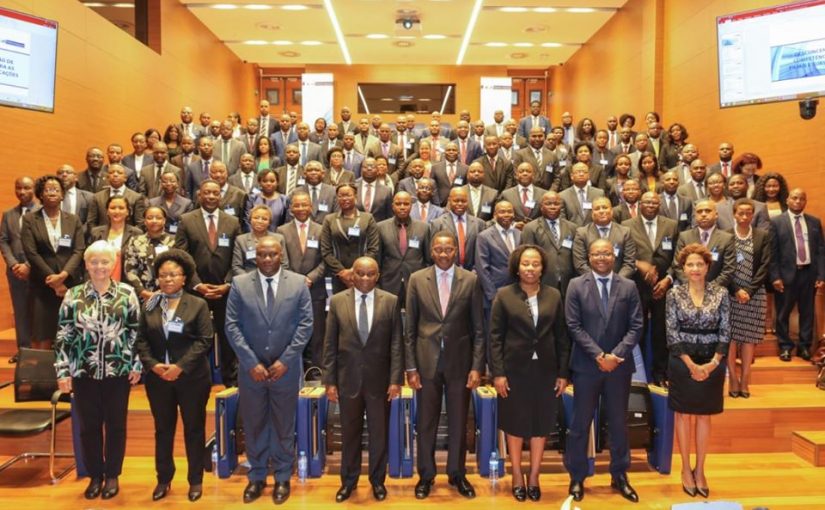Mozambique: Digitalising public administration will cut corruption - president
Mozambique: Governor of Central Bank claims success in 2019 – AIM

Photo: Banco de Moçambique / Facebook
The Bank of Mozambique has complied with its mission to consolidate macro-economic stability and the country’s financial system, despite “a particularly complex” economic, political and social context, in both the domestic and international arena, declared the Bank’s governor, Rogerio Zandamela, on Wednesday.
Speaking in the southern city of Xai-Xai, at the opening of a meeting of the Consultative Council of the central bank, Zandamela cited as positive steps, contributing to the success of the Bank’s mission, the peace agreement signed in August between President Filipe Nyusi and the leader of the former rebel movement Renamo, Ossufo Momade, and the final investment decision on the liquefied natural gas project in Area One of the Rovuma Basin, off the coast of the northern province of Cabo Delgado.
Other positive signs were the grant, by the International Monetary Fund (IMF), of 118 million US dollars for reconstruction after cyclone Idai devastated much of central Mozambique in March, and the 880 million dollars in capital gains tax to be paid to the Mozambican treasury as a result of the takeover of Anadarko, formerly the operator of Rovuma Basin Area One, by Occidental Petroleum.
Zandamela said his assessment of the performance of the Bank of Mozambique was “very positive”, based on such results as the reduction in the annual inflation rate to around two per cent, an increase in the country’s international reserves so that they cover around seven months of imports of goods and services, a stable exchange rate, and adequate levels of solvency of the commercial banks.
As for the domestic events which caused difficulties for the banks, Zandamela stressed, in particular, the two cyclones, Idai and Kenneth, in March and April, which had reduced the supply of goods and services. He also pointed to the continued military instability in Cabo Delgado, and the appearance of foci of violence in the central provinces of Manica and Sofala.
On the world stage, Zandamela pointed to worsening commercial tensions and “geopolitical conflicts”, and the prolonged impasse over whether or not the United Kingdom is going to leave the European Union.
These uncertainties influenced demand for the commodities Mozambique exports and cause volatility in their prices, he pointed out.
Zandamela said the central bank has cut its benchmark interest rate from 15 to 12.75 per cent, which contributed to a drop in the interest rates charged by the commercial banks to their preferential clients from 20.2 to 18 per cent.
Zandamela added that the Bank of Mozambique held “with great success” and in partnership with the International Monetary Fund (IMF) a high level international seminar on sovereign wealth funds.
The consensus from this meeting, he said, was that it is important to set up a sovereign fund in Mozambique, and preparatory work for this is now under way.













Leave a Reply
Be the First to Comment!
You must be logged in to post a comment.
You must be logged in to post a comment.